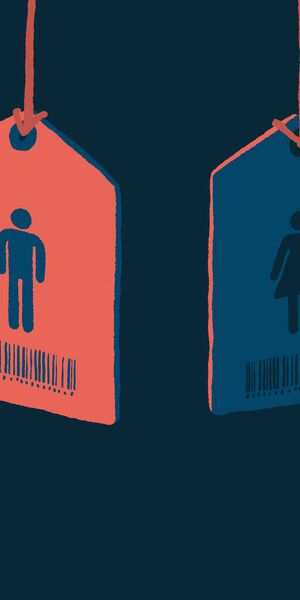Anti-Slavery Commissioner calls on Government to reform process for identifying and supporting victims
Human Trafficking
CARE warmly welcomes recent comments from Kevin Hyland OBE, the UK’s Independent Anti-Slavery Commissioner describing the process through which victims of human trafficking are identified and supported as “cumbersome” saying “the time has come for a radical change.”
In 2014 the Government conducted a review into the system which makes a formal decision about whether or not a person is considered to be a victim of modern day slavery by the UK authorities (called the National Referral Mechanism or NRM). That review made a number of recommendations. Pilots have been set up to test some new schemes, but wider reforms have not yet been implemented.
In a letter to Home Office Minister Sarah Newton, published last week the Anti-Slavery Commissioner expresses frustration at the slow progress saying “two years after the NRM review, I am concerned that we are still in the process of searching for solutions, in this time we have potentially left thousands of victims at risk and may have allowed numerous criminal networks to go unpunished.”
The Commissioner stresses that the system must respond better to the needs of victims, and also that it should be more coordinated so that intelligence gathered from individual cases can be put to use in addressing the wider criminal networks responsible for much of this exploitation.
Key among the Commissioner’s recommendations is his suggestion that the NRM process should be simplified. He recommends instead of a two stage process to decide whether or not someone is a victim this determination should be made in a single decision. One of the key problems of the current process is that apart from in Northern Ireland, victims are not entitled to support before the first stage decision is made.
The Commissioner also recommends all cases should be decided by a “single, specially trained, expert multi-agency panel that consists of a wide range of professionals” rather than the sharing of responsibilities between UK Visas and Immigration (for possible victims from outside the EU) and the National Crime Agency (for EU and British nationals) which operates at present. This change would simplify the process and will ensure a range of expertise is brought into the decision-making and reduce the danger of immigration issues being conflated with the question of whether or not a person has been exploited.
In his letter the Commissioner re-iterates his concerns expressed previously to the Work and Pensions Committee about the lack of support available for victims once the decision is made confirming their status as a victim. He writes that a person accepted by the system as a victim “must be entitled to further move-on support to help them reintegrate into society, either in the UK or in their home country if they choose to return.” The Commissioner goes on to stress that for victims who return to their country of origin “the Government needs to develop a consistent approach to returning and reintegrating victims safely, voluntarily and successfully as part of the reformed NRM”. At the moment the system makes no effort to assess the risk for a victim returning home, and yet re-trafficking is a significant possibility in many cases.
CARE welcomes the Commissioner’s letter and supports his call for an NRM which is focused more on the needs of victims. We joined the Commissioner in giving evidence to Parliament earlier this month highlighting the need for greater access to support following the NRM process. We also welcome his endorsement of the legislation in Northern Ireland which provides more comprehensive support for victims than the Modern Slavery Act and on which CARE provided key advice to the Bill’s proposer Lord Morrow.
CARE urges the Government to heed the Commissioner’s advice and take urgent action to comprehensively reform the NRM. Among those changes must be a guarantee in law of victims’ entitlement to support, greater provision to aid victims’ recovery and reintegration after the NRM process and a streamlined specialist decision-making system separate from immigration processes.





Share story
Anti-Slavery Commissioner calls on Government to reform process for identifying and supporting victims